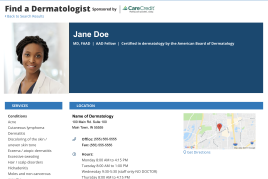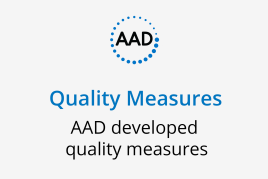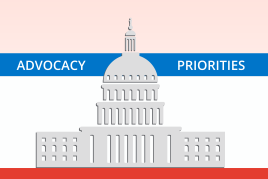Biotin supplementation for hair and nail health: Does it pass the test?

By Warren R. Heymann, MD, FAAD
November 17, 2021
Vol. 3, No. 46

What is biotin?
Biotin (vitamin B7, vitamin H, coenzyme R) is a water-soluble vitamin that acts as a coenzyme of four kinds of carboxylase (propionyl coenzyme A carboxylase, pyruvate-carboxylase, acetyl coenzyme A carboxylase, methyl-carbamoyl coenzyme A carboxylase) in mitochondria, facilitating three major metabolic reactions: carboxylation, decarboxylation, and dehydrogenation. Recently, it has been demonstrated that biotin has roles in cell signaling and epigenetic regulation. (2,3)
How much biotin intake is necessary for good health?
According to John and Lipner, “The Food and Nutrition Board of the Institute of Medicine has recommended 30 μg/day of biotin, and a normal Western diet consists of 35 to 70 μg/day. Dietary sources of biotin include organ meats, eggs, fish, sweet potatoes, and almonds.” (4) Bistas and Tadi state “The U.S. Food and Drug Administration does not recommend daily biotin usage, although patients who are breastfeeding or pregnant are recommended take from 5 mcg/ to 35 mcg/day. Pregnancy and smoking increase the metabolism of biotin and would require increased intake, although controversial.” (2)
When is biotin supplementation warranted?
Biotin supplementation (beyond the recommended daily dose) is only rarely necessary, that being in congenital and acquired cases of biotin deficiency. The congenital causes are the autosomal recessive biotinidase and holocarboxylase synthetase deficiencies. According to Yang et al, “The former causes lack of absorption and utilization of biotin, with absence of biotin. In the latter, the biotin level is normal, but the demand for biotin is significantly increased, that is, relatively deficient. Examples of the latter are some inherited metabolic diseases with specialized diet requirements, such as phenylpropionuria or propionemia. If biotin is not added to the formula, biotin deficiency may occur.” (3) The acquired causes are mostly secondary to chronic gastrointestinal diseases or dietary habits, such as long-term consumption of raw egg white and alcoholism. Raw egg whites contain avidin that binds to biotin, preventing absorption. This can be prevented by cooking the eggs, which denatures avidin. Administration of certain medications such as antiepileptic drugs (notably valproic acid) may become biotin deficient. Long-term antibiotics may alter the gut flora, thereby diminishing biotin absorption. (5)

How does biotin deficiency present clinically?
Patel et al assert: “Whether acquired or congenital, typical symptoms of biotin deficiency include alopecia, eczematous skin rashes, seborrheic dermatitis, conjunctivitis, and multiple neurological symptoms, such as depression, lethargy, hypotonia, and seizures.” (5)
What is the evidence that biotin benefits hair and nail growth?
There is only limited evidence that biotin supplementation provides a benefit for hair and nail growth; to date, there are no clinical trials supporting claims that biotin supplementation improves hair and nail growth or quality. (2) In their systematic review, Patel et al found 18 reported cases of biotin use for hair and nail changes. In all cases, patients receiving biotin supplementation had an underlying pathology for poor hair or nail growth. All cases showed evidence of clinical improvement after receiving biotin. The authors concluded: “Though its use as a hair and nail growth supplement is prevalent, research demonstrating the efficacy of biotin is limited. In cases of acquired and inherited causes of biotin deficiency as well as pathologies, such as brittle nail syndrome or uncombable hair, biotin supplementation may be of benefit. However, we propose these cases are uncommon and that there is lack of sufficient evidence for supplementation in healthy individuals.” (5)
Is biotin supplementation dangerous?
No severe toxicities have been reported with biotin supplementation. (2,5) The problems that may occur are related to potentially affecting laboratory tests.
What laboratory studies are potentially affected by biotin administration?
Biotin administration may adversely affect immunoassays that are streptavidin/biotin-based. Results may be falsely high or low. (6) On Nov. 28, 2017, the FDA warned that biotin could interfere with lab tests. The following is a quote from the warning: “Biotin in patient samples can cause falsely high or falsely low results, depending on the test. Incorrect test results may lead to inappropriate patient management or misdiagnosis. For example, a falsely low result for troponin, a clinically important biomarker to aid in the diagnosis of heart attacks, may lead to a missed diagnosis and potentially serious clinical implications. The FDA has received a report that one patient taking high levels of biotin died following falsely low troponin test results when a troponin test known to have biotin interference was used.” (7)
For dermatologists, thyroid function studies are the most likely tests where biotin interference will be observed. According to Koehler et al, “It is crucial to draw attention on biotin-induced interference not only on TFTs immunoassays, but also on numerous other immunoassays causing unexplainable biochemical results. For example, dehydroepiandrosterone sulfate (DHEAS), luteinizing hormone (LH), follicle-stimulating hormone (FSH), tumor markers such as cancer antigen (CA) 125, CA 19-9 and CA 72-4 and troponine T.” (6) Interference may also be observed with b-HCG, HIV, hepatitis, and vitamin D assays. (8)
If my patients are taking biotin supplements, when should it be discontinued prior to getting laboratory tests?
The time required for patients to discontinue biotin supplementation in order to avoid assay interference is variable, depending on the patient population, time of blood collection relative to the last biotin dose, biotin dose, chronicity of biotin exposure, and half-life of free biotin and biotin metabolites in plasma (9) Discontinuation of biotin for at least 2 to 5 days prior to obtaining biotin/streptavidin-dependent assays has been recommended. (6). Personally, I just find it easier to tell patients to wait a week.
Point to Remember: Biotin supplementation for hair and nails may be valuable in rare circumstances. Despite its popularity, to date there is no evidence that it promotes hair and nail growth or quality in otherwise healthy patients. Patients must be warned that biotin supplementation could adversely affect streptavidin/biotin-based laboratory assays.
Our expert’s viewpoint
Shari R. Lipner, MD, PhD, FAAD
Associate Professor of Clinical Dermatology
New York-Presbyterian Hospital/Weill Cornell Medical Center
Treatments that are not evidence-based persist in dermatologic care. When we are asked by a patient about a vitamin or supplement to improve skin, hair, or nails, we may be tempted to say: “Well, there are no good studies to suggest that it will help, but it will not hurt you.” However, there is insufficient evidence for efficacy of biotin for treatment of dermatologic conditions, and in some cases its use may be life-threatening due to its interference with laboratory tests that rely upon biotin-streptavidin technology. On 11/18/2017, the Food and Drug Administration (FDA) was prompted to issue a warning on biotin due to a report of a myocardial infarction and death due to falsely low troponin levels. (10) Unfortunately, this warning seemed to have little effect on physician recommendations and patient interest in biotin. During the period, 12/1/2017-11/30/2019 compared to 1/6/2006-11/30/2017, U.S. Google searches for biotin increased by 50%. (11) In a survey-based study of dermatology outpatients in June 2018, 34% reported biotin supplementation, and 40% of those patients were still taking it despite the FDA warning. (12) Even more disturbing was that in a survey-based study of dermatologists, 51% were still prescribing biotin 2 years following the 2017 FDA warning. (8) On 11/5/2019, the FDA issued a second warning on biotin, citing continued adverse event reports of falsely low troponins due to biotin interference with laboratory tests. (13) Therefore, dermatologists should carefully review the current literature on efficacy of biotin for hair, skin, and nail disorders before recommending supplementation and educate their patients on the risks and benefits of taking this supplement. (14)
Li D, Rooney MR, Burmeister LA, Basta NE, Lutsey PL. Trends in Daily Use of Biotin Supplements Among US Adults, 1999-2016. JAMA. 2020 Aug 11;324(6):605-607. doi: 10.1001/jama.2020.8144. PMID: 32780133; PMCID: PMC7420177.
Bistas KG, Tadi P. Biotin. 2020 Jul 8. In: StatPearls [Internet]. Treasure Island (FL): StatPearls Publishing; 2020 Jan–. PMID: 32119380.
Yang Y, Yang JY, Chen XJ. Biotinidase deficiency characterized by skin and hair findings. Clin Dermatol. 2020 Jul-Aug;38(4):477-483. doi: 10.1016/j.clindermatol.2020.03.004. Epub 2020 Apr 1. PMID: 32972606.
John JJ, Lipner SR. Consumer Perception of Biotin Supplementation. J Cutan Med Surg. 2019 Nov/Dec;23(6):613-616. doi: 10.1177/1203475419871046. Epub 2019 Aug 13. PMID: 31409115.
Patel DP, Swink SM, Castelo-Soccio L. A Review of the Use of Biotin for Hair Loss. Skin Appendage Disord. 2017 Aug;3(3):166-169. doi: 10.1159/000462981. Epub 2017 Apr 27. PMID: 28879195; PMCID: PMC5582478.
Koehler VF, Mann U, Nassour A, Mann WA. Fake news? Biotin interference in thyroid immunoassays. Clin Chim Acta. 2018 Sep;484:320-322. doi: 10.1016/j.cca.2018.05.053. Epub 2018 May 30. PMID: 29856977.
US Food and Drug Administration accessed November 13, 2020.
Waqas B, Wu A, Yim E, Lipner SR. A survey-based study of physician practices regarding biotin supplementation. J Dermatolog Treat. 2020 May 25:1-2. doi: 10.1080/09546634.2020.1770178. Epub ahead of print. PMID: 32419559.
Li D, Radulescu A, Shrestha RT, Root M, Karger AB, Killeen AA, Hodges JS, Fan SL, Ferguson A, Garg U, Sokoll LJ, Burmeister LA. Association of Biotin Ingestion With Performance of Hormone and Nonhormone Assays in Healthy Adults. JAMA. 2017 Sep 26;318(12):1150-1160. doi: 10.1001/jama.2017.13705. PMID: 28973622; PMCID: PMC5818818.
US FDA. Biotin (Vitamin B7): Safety Communication - May Interfere with Lab Tests. 11/28/2017
Wang Y, Lipner SR. Google trends analysis of public interest in biotin for dermatological conditions following the FDA warning. Dermatol Ther. 2020 Jun 26:e13904. doi: 10.1111/dth.13904. Online ahead of print. PMID: 32592195
John JJ, Cooley V, Lipner SR. Assessment of biotin supplementation among patients in an outpatient dermatology clinic. J Am Acad Dermatol. 2019;81(2):620-21. doi: 10.1016/j.jaad.2018.12.045
US FDA UPDATE: The FDA Warns that Biotin May Interfere with Lab Tests: FDA Safety Communication. 11/5/2019
Lipner SR. Update on Biotin Therapy in Dermatology: Time for a Change. J Drugs Dermatol. 19(12). Doi: 10.36849/JDD.2020.4946
All content found on Dermatology World Insights and Inquiries, including: text, images, video, audio, or other formats, were created for informational purposes only. The content represents the opinions of the authors and should not be interpreted as the official AAD position on any topic addressed. It is not intended to be a substitute for professional medical advice, diagnosis, or treatment.
DW Insights and Inquiries archive
Explore hundreds of Dermatology World Insights and Inquiries articles by clinical area, specific condition, or medical journal source.
All content solely developed by the American Academy of Dermatology
The American Academy of Dermatology gratefully acknowledges the support from Incyte Dermatology.
 Make it easy for patients to find you.
Make it easy for patients to find you.
 Meet the new AAD
Meet the new AAD
 2022 AAD VMX
2022 AAD VMX
 AAD Learning Center
AAD Learning Center
 Need coding help?
Need coding help?
 Reduce burdens
Reduce burdens
 Clinical guidelines
Clinical guidelines
 Why use AAD measures?
Why use AAD measures?
 Latest news
Latest news
 New insights
New insights
 Combat burnout
Combat burnout
 Joining or selling a practice?
Joining or selling a practice?
 Advocacy priorities
Advocacy priorities
 Promote the specialty
Promote the specialty

